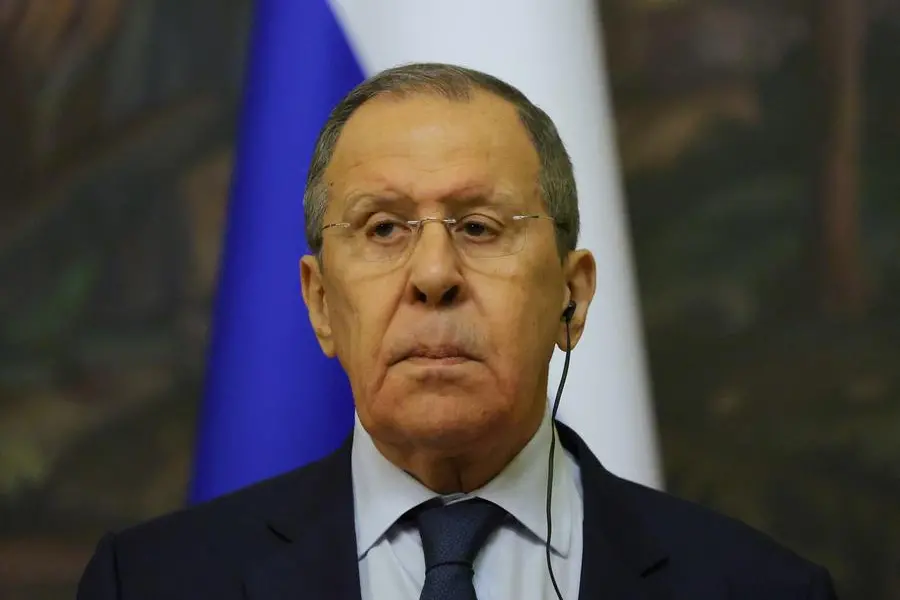PHOTO
Russian Foreign Minister Sergei Lavrov was on the Indonesian island of Bali on Thursday preparing for a G20 gathering that will be his first face-to-face meeting with the fiercest critics of his country's invasion of Ukraine.
The G20 foreign ministers' meeting runs until Friday in host country Indonesia, which has this year grappled with the tough balancing act of running a global summit buffeted by geopolitical pressures and a global food crisis blamed on the Ukraine war.
There was tight security on Thursday as foreign diplomats descended on the tropical island for a meeting where the Russia-Ukraine conflict will be front and centre.
Australian Foreign Minister Penny Wong said her country and like-minded nations would use the G20 meeting to highlight the impact of the war.
"We will be making very clear collectively our views about Russia's position and Russia's behaviour," she said.
Thursday's welcome dinner will be the first time President Vladimir Putin's long-serving foreign minister Lavrov will be up close with the most vocal opponents of the Ukraine invasion, which Moscow has called a "special military operation".
Lavrov planned to meet some G20 counterparts on the sidelines of the summit, Russian news agency TASS reported, but ministers including Germany's Annalena Baerbock and U.S. Secretary of State Antony Blinken have ruled out separate meetings with Lavrov.
The Group of 20 includes Western countries that have accused Moscow of war crimes in Ukraine and imposed sanctions, but also countries like China, Indonesia, India and South Africa that have been more muted in their response.
Some U.S. and European officials have stressed the gathering would not be "business as a usual", with a spokesperson for the German foreign minister saying G7 countries would coordinate their response to Lavrov.
In 2014, the G7 excluded Russia from the G8 over its annexation of Crimea.
Top officials from Britain, Canada and the United States walked out on Russian representatives during a G20 finance meeting in Washington in April.
Despite early talk of boycotting subsequent G20 meetings, some analysts say Western nations may have decided it would be counterproductive to cede the floor to Russia.
A senior U.S. State Department official said on Thursday it was important to maintain a focus on what Indonesia had set out for its G20 presidency and "not let there be any disruptions or interruptions to that."
Discussion of energy and food security are on the agenda in the two-day meeting, with Russia accused of stoking a global food crisis and worsening inflation by blockading shipments of Ukrainian grain. Russia has said it ready to facilitate unhindered exports of grain.
Indonesian Foreign Minister Retno Marsudi discussed with her Chinese counterpart Wang Yi the need to protect regional stability and solve global issues related to the Russia-Ukraine conflict.
"The solidity of the voices of developing nations are needed to stop the war, and to reintegrate food exports of Ukraine and Russia into the global supply chain," Indonesia's foreign ministry said in a statement.
Trying to leverage Indonesia's neutrality, President Joko Widodo undertook an ambitious peace-brokering mission last week, visiting Kyiv and Moscow to meet his Ukrainian and Russian counterparts. (Reporting by Stanley Widianto in Nusa Dua, Kirsty Needham in Sydney and David Brunnstrom in Tokyo; Writing by Kate Lamb; Editing by Ed Davies)
Reuters





















